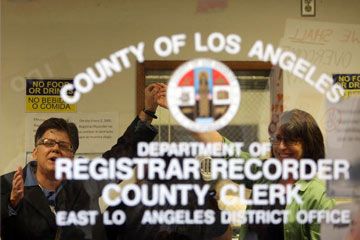The board of commissioners is the oldest form of county government in America and is still very common. In colonial times, it was particularly prevalent in the South, which was less densely populated than the Northern colonies, and it spread across much of the rest of the country as the nation grew. These days, it is seen less in New England, where local government is usually administered at the town or city level. Connecticut, Rhode Island and parts of Massachusetts have no county governments at all [source: Kemp].
In a county commission form of government, a body of elected commissioners serves both the executive and the legislative duties, meaning they enact local ordinances and administer them. They approve budgets, oversee spending and hire county employees. The commission usually consists of three to five officials. In some states, they are known as supervisors. In New Jersey, they're called "chosen freeholders." And in Louisiana, they're often known as "parish police jurors" [source: Kemp].
Advertisement
The commissioners are responsible to the voters, but their duties are defined and controlled by the state constitution and state statutes. Their actions can be overturned by state courts. Some department heads, such as sheriff, clerk, treasurer and coroner, are elected rather than appointed by the commissioners [source: Kemp].
When many counties were still rural, the duties of the board of commissioners were limited. They kept vital records, assessed property, administered elections and maintained roads. With the spread of suburbs, many counties grew in population and began offering a far wider range of services. It is not unusual today for a board of commissioners to oversee consumer protection, economic development, planning, environmental quality and social welfare programs [source: Kemp].
Other duties that the board of commissioners may be responsible for or oversee include:
- Issuing bonds
- Managing county parks
- Collecting and disposing of trash
- Managing pensions for county employees
- Assuring water quality
- Administering courts and jails
- Collecting property and sales taxes
In recent decades, government reform movements have criticized the commission form of county government for not having a single chief executive in charge. Some counties have moved to one of two related forms of government in an effort to solve the issue [source: League of Women Voters]:
- Commission-administrator: The elected commissioners appoint a separate professional administrator who carries out policies, hires and fires employees, and prepares a budget for the commission's approval.
- Council-executive: Voters elect one person as county executive along with a council that serves as the county legislative body. In some areas, the executive can veto laws enacted by the council and exercise other executive powers.
Today, more than 40 percent of counties have adopted one of these alternative forms [source: Kemp]. In some states, such as Tennessee, state law requires that counties be led by an elected executive [source: Kemp]. Many others, however, have continued to use the traditional county commission form of government.
Read on for more information about local government and elected officials.
Advertisement


